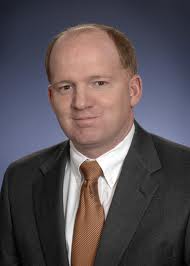We’re a little less than a month into the college football season, but the first firing has already been made in the form of Tim Beckman, head coach at Illinois. Beckman was ousted after three seasons of mostly mediocre results, but the real story came forward when current and former players accused him of verbal abuse and willfully ignoring injuries.
While this was a unique and unfortunate case, you can expect plenty more of firings from now until December. I present my case for all of the head coaches who I believe should be ousted:
Al Golden, Miami
Golden, who enjoyed a successful run at Temple from 2007-2010, has been far from the savior of one of the nation’s most historic and respected programs. Even after an ongoing NCAA scandal was unofficially concluded a few years back, Golden’s teams have been some of the most underachieving in the FBS. He has probably recruited more NFL talent than the rest of the ACC coaches combined. But the Hurricanes’ disgruntled fanbase has still yet to see a conference title in the ACC era (2004-present), and Golden’s overall record (28-22 in four years) leaves much to be desired.
Larry Fedora, North Carolina
Fedora’s hiring seemed to be great at the time, as he had enjoyed great success at Southern Miss (34-19 in four years) and brought a reputation to Chapel Hill as a spread offense guru. Like Golden at Miami, Fedora and his staff have recruited well through a prolonged NCAA investigation, but the Tar Heels just haven’t been good enough to contend in a mostly-average ACC Coastal Division. With controversy still surrounding the program, it’s best that UNC takes things in a different direction.
Kyle Flood, Rutgers
Flood was the offensive line coach under previous head man Greg Schiano, who led the Scarlet Knights from being perennial cellar-dwellers to consistent competitors in the former Big East Conference. Since taking over in 2012, Flood has improved facilities and managed the transition into the Big Ten last season.
But nothing has gone right for Rutgers this year, in the form of ugly play on the field and suspensions of six players off of it due to various allegations of theft, aggravated assault, and domestic violence. While Flood’s record isn’t awful (23-16 in three years), his teams have not been stellar, either, and the move to the Big Ten in 2014 exposed some major weaknesses on the Scarlet Knights’ roster. With the NCAA swarming around the program, Flood needs to leave as gracefully as he can.
Mike London, Virginia
London is a tough-as-nails, blue-collar guy, and that was sorely needed when he arrived in Charlottesville in 2010. While London is an outstanding recruiter and has drawn kudos for creating a culture of discipline and accountability, the on-field results have been mediocre (24-40 overall). Yes, the Cavs have certainly been up against it in the schedule department, but London has never found a consistent performer at quarterback or helped produce a decent rushing attack. The most glaring statistic, though, is London’s 0-5 record against the kids from Blacksburg.
Darrell Hazell, Purdue
Like Tim Beckman at Illinois, Hazell was hired at Purdue due to his experience in the Midwest as a coach at Kent State, and also because he coached under the legendary Jim Tressel at Ohio State.
Hazell’s 11-win campaign at Kent State in 2012 was nothing short of amazing, and that was the springboard to his hiring at Purdue. But the honeymoon is long over for Hazell, who is 5-22 and counting, while staring up at an improving Big Ten. The Boilermakers’ sluggish offense has gone through five different starting QBs in two years, one of whom — former four-star recruit Danny Etling — is no longer with the program (transferred to LSU this summer).
Trent Miles, Georgia State
When Miles was hired to replace the retiring Bill Curry in 2013, there was hope that he could transform the Panthers as they became full-fledge FBS members in the Sun Belt Conference. Miles had done an excellent job at the FCS level with Indiana State (his alma mater), so there was reason to believe that he could do the same in downtown Atlanta.
Two weeks ago, Miles registered his first FBS victory over an FBS team — a three-point road victory over Sun Belt opponent New Mexico State. The bad news is that it merely took Miles 20 tries to get such a win (overall record 2-25). Despite a quality staff of assistants and a fertile recruiting ground, the Panthers have been truly awful in the Miles era.
Norm Chow, Hawaii
It’s a real shame to put him on this list. The 69-year-old Chow has been an assistant at BYU, Utah, USC, UCLA, and the NFL’s Tennessee Titans; he is arguably the most respected assistant coach in college football in the past couple decades. In 2012, he took his first head coaching job back in his home state.
Chow’s teams have proved to repeatedly choke in big games, losing nine games by one possession or less in the last two seasons. There’s also been very little continuity from year to year, as evidenced by the fact that only one assistant coach remains from Chow’s debut season. This year could be his last stand, facing a record of 10-30, dwindling attendance numbers, precious little depth, and a buyout north of $200,000.
Paul Petrino, Idaho
The remote location, the lack of tradition, the less-than-adequate facilities, and the lack of any real recruiting footprint have long been obstacles to Idaho football. But contrary to popular belief, it IS possible to win in Moscow; the Vandals have been to a bowl game as recently as 2009.
In 2013, facing a daunting Independent schedule after the WAC got smothered in conference re-alignment, athletic director Rob Spear brought in Petrino, the younger brother of current Louisville head man Bobby Petrino. Paul Petrino brought an excellent reputation as a coach, plus familiarity with the program, as his first NCAA coaching gig was at Idaho from 1992-1994. Following a predictably poor showing as an Independent, Petrino led the Vandals to the Sun Belt in 2014.
Last season, the Vandals weren’t even eligible for a bowl game after posting below-average Academic Progress Report (APR) scores. This August, an ugly incident occurred when Petrino swore at and nearly punched a sideline reporter and had to be restrained by an assistant coach. And there was also an unsettling incident where three Vandal players were caught shoplifting from the campus bookstore and Petrino refused to suspend them, leading to whispers that he had made the charges go away.
As of last week, Petrino, in his first head coaching gig, has an ugly record of 3-23.













